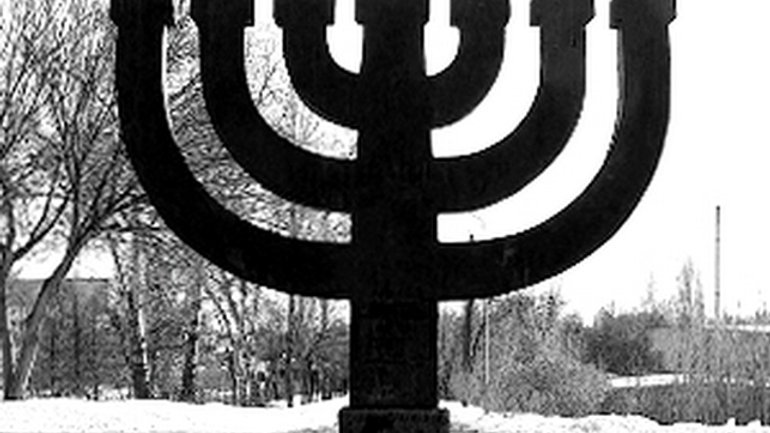AUCCRO makes public its position on the proper observance of victims of Nazism and communism in the Babyn Yar National Reserve in Kyiv

"Babyn Yar is not only a world-famous symbol of homicide, one of the most terrible pages of the Holocaust, but also a memory of what a person can be capable of in extreme conditions and terrible circumstances. A place that makes you remember not only those who suffered there and died innocent, but also those who gave themselves the right to determine who lives and who does not. It divided people into "higher" and "lower", "right" and "harmful" ones and easily killed political and ideological opponents in the name of an illusory idea.
This is a place that unites in its misfortune those who honor the memory of all the innocent victims of the twentieth century, whose lives ended forcibly in Babyn Yar. Victims of the Holodomor and Stalin's political repressions.
But still, Babyn Yar is known all over the world as one of the most recognizable and expressive symbols of the Holocaust tragedy. As the apogee of the criminal Nazi policy and mass murder: Jews, as well as Roma, Ukrainian patriots, prisoners of War, communists, persons with mental and physical disabilities, civilian hostages, underground workers and prisoners of the Syretsky concentration camp.
In the post-war Soviet times, Babi Yar became the site of another tragedy-the man-made Kurenevska disaster of 1961, which claimed the lives of many hundreds of people and led to mass destruction.
"That is why memorialization of the memory of all the victims of the Babyn Yar should be based on universal principles, avoiding politicization and ideologization. Such a memory should be a warning for future generations," the document says.
The AUCCRO suggests adhering to the following principles during the construction of the memorial complex:
1. The issue of Babyn Yar memorialization should be implemented, recognizing the need to unite the efforts of Ukrainian society, the state, the international community, International and Ukrainian organizations that study and study the Holocaust and the Babyn Yar tragedy, aimed at preserving and restoring historical memory, which should become a constant reminder of the price that peoples pay for peace.
2. Memorialization of tragedies should take place within the framework of an inclusive model of common memory, taking into account the national, religious and social composition of victims of totalitarianism buried in a certain territory, in compliance with the norms of Ukrainian and international law.
3. When implementing such projects, it is necessary to take into account not only the high international standards of scientific science but also the religious feelings and traditions of those faiths whose faithful rest in this territory.
4. Plans and actions aimed at memorializing and honoring the memory of the victims of the Babyn Yar cannot be used in a narrow political struggle or for the sake of a temporary political or geopolitical situation. Also, memorializing the site of a tragedy cannot serve to satisfy someone's personal ambitions.
5. This whole process should take place under the slogan: "Never again!". The memorial complex dedicated to the Babyn Yar tragedy should not only preserve the memory of terrible crimes against humanity and properly honor the victims of these crimes but also be a guarantee that this will never happen again.
The document was signed by:
1. Valery Antonyuk, Chairman of the All-Ukrainian Union of Evangelical Christian Baptist Churches
2. His Beatitude Epifaniy (Dumenko), Primate of the Orthodox Church of Ukraine, Metropolitan of Kyiv and all Ukraine
3. His Beatitude Sviatoslav Shevchuk, Chairman of the AUCCRO, Father and Head of the Ukrainian Greek Catholic Church, Major Archbishop of Kyiv-Halych
4. Vitaliy Krivitsky, Bishop of the Diocese of Kyiv-Zhytomyr of the Roman Catholic Church in Ukraine
5. Vyacheslav Gorpynchuk, Bishop of the Ukrainian Lutheran Church
6. Komendant Hryhoriy, President of the Ukrainian Bible Society
7. Markos (Hovhannisyan), Bishop of the Ukrainian Diocese of the Armenian Apostolic Church
8. Panochko Mykhailo, senior Bishop of the Ukrainian Church of Evangelical Christians









